How our students engage the community
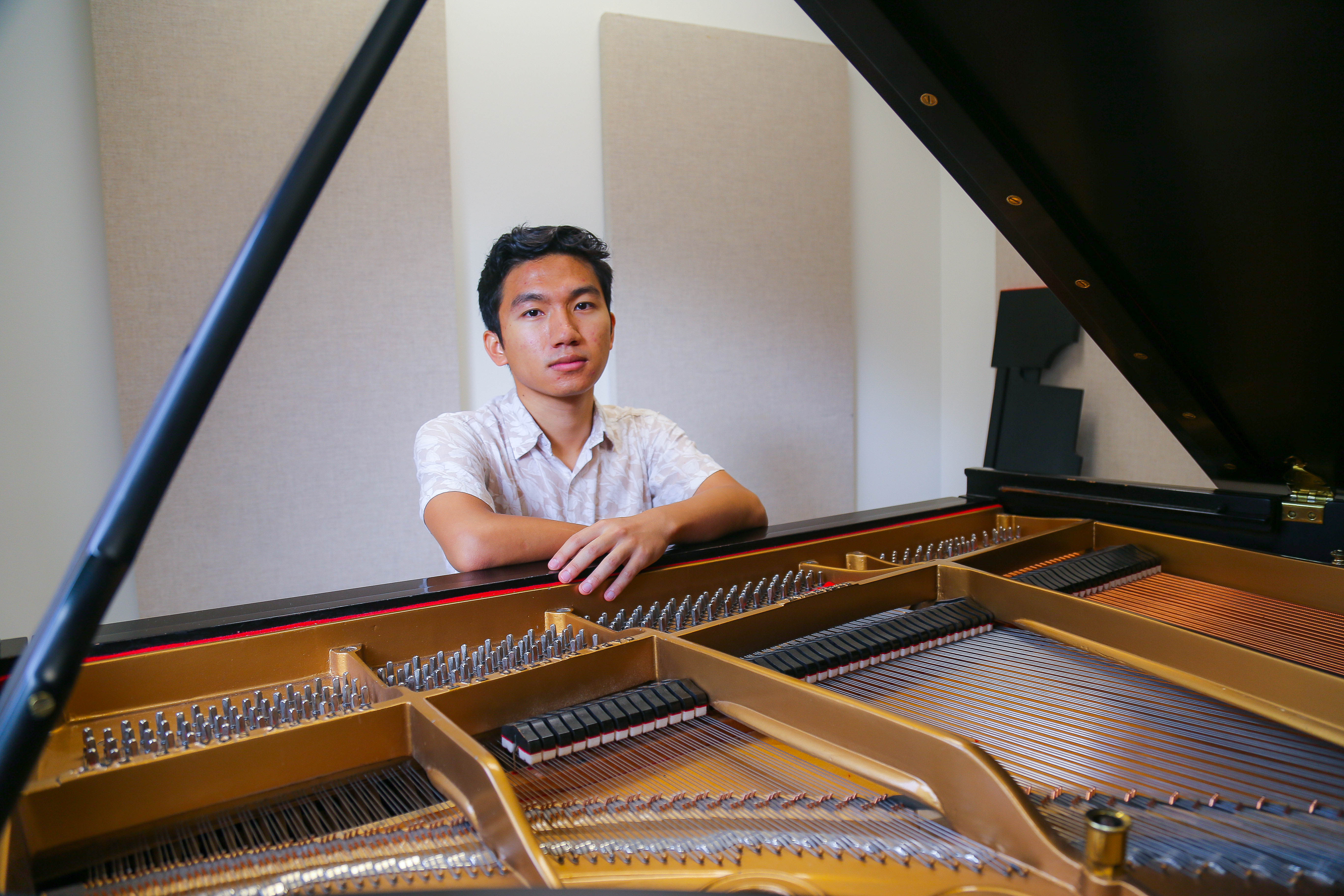
Petenei Tacü ’22
music major | Phesama, India
“In my country, we teach math, we teach science, but it is primarily the wealthy students who receive music lessons. My parents taught me to give back to the community, and taking Music for Social Change made my focus clearer. This course made sense to me, and I connected with it personally. Part of my internship was spent in the GC Leaf Alive Camp for local school children this summer. I saw how normally quiet kids responded when they heard music that represented their cultural heritage.
“After my studies, I want to return to India. We need a purpose in life, and my purpose is to help children learn and experience music, while preserving our culture, and inspiring social change.”
Music for Social Change — a minor program of study or concentration at the college and the first undergraduate program of its kind — is designed to intersect with initiatives in Elkhart County and to give students experiential learning opportunities to use music education for youth to help bring about social change.”
___
Music for Social Change — a minor program of study or concentration at the college and the first undergraduate program of its kind — is designed to intersect with initiatives in Elkhart County and to give students experiential learning opportunities to use music education for youth to help bring about social change.
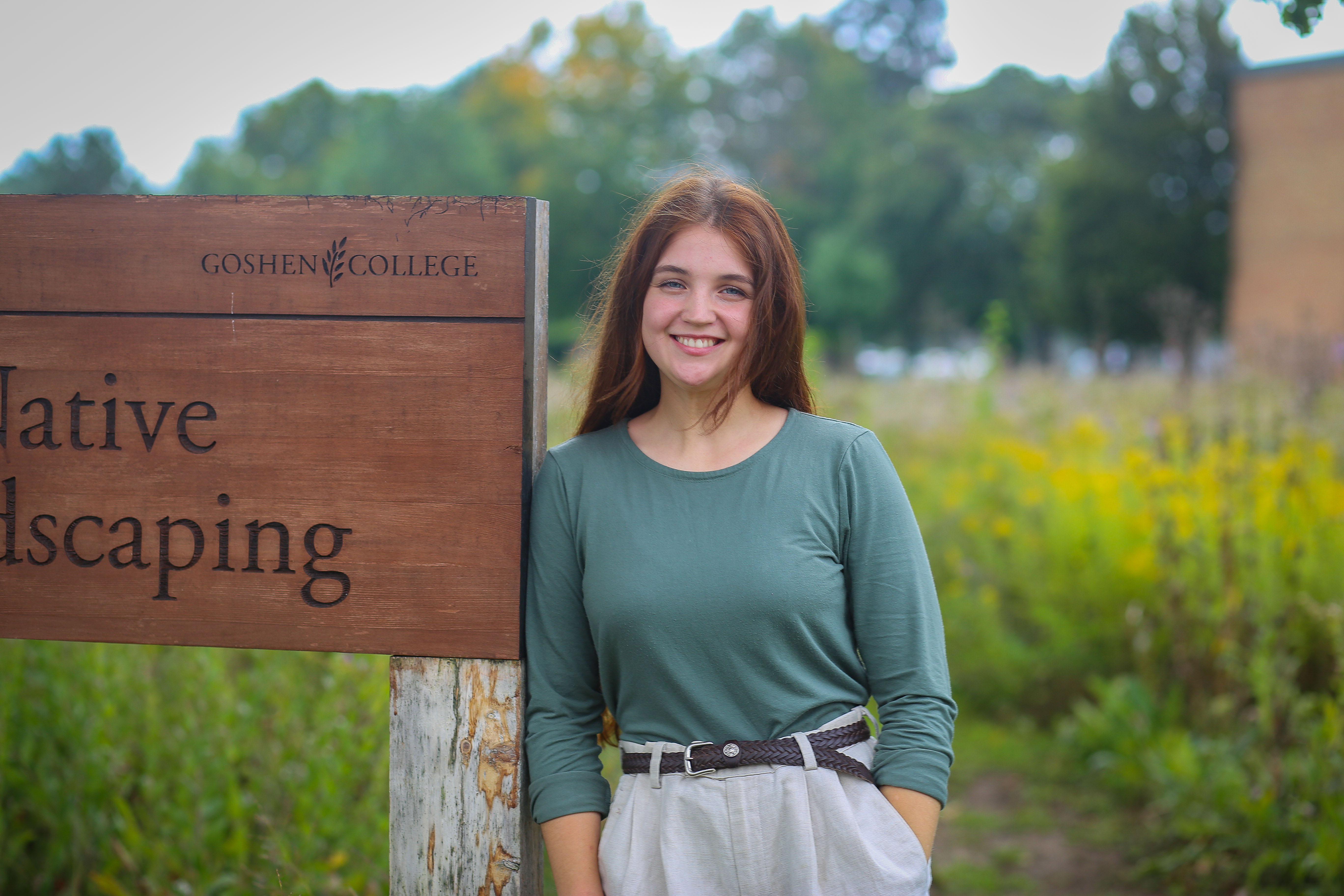
Emma Zuercher ’23
sign language interpreting major | Apple Creek, Ohio
“My experience as a participant in the Sustainability Leadership Semester (SLS) at Merry Lea helped shape the lens through which I see the world. I saw how sustainability — a word I found confusing and undefined prior to my SLS experience — applies not only to environmental issues, but to culture, social and environmental justice, language, art and community. Sustainability is inherently interdisciplinary and that means it’s woven into every aspect of my life no matter what my career path looks like.
“Our canoe trip, treks through the many ecosystems at Merry Lea and conversations with people of diverse perspectives, shifted my understanding of relationships. I learned to see that community is not only inclusive of all people but is much broader than the human world. My neighbor is the egret on the wetland, the bluestem grass in the prairie and the deer in the forest. All beings must be included in creating a world that supports us now and those who will live after us. Sustainability comes in many forms and is meant for everyone.”
___
The Sustainability Leadership Semester (SLS) at the college’s Merry Lea Environmental Learning Center is a 13-week fall semester, residential program for undergraduate students that explores the many ways we can contribute to sustainable, resilient futures for our communities in the midst of our rapidly changing planet. Students discover the sustainability of places through canoeing 70 miles from the top of the watershed at Merry Lea to Lake Michigan, hiking trails, and interacting with various community members and sustainability professionals. Within SLS, students dig into personal leadership development while also reading widely to connect with insights and ideas from diverse disciplines.
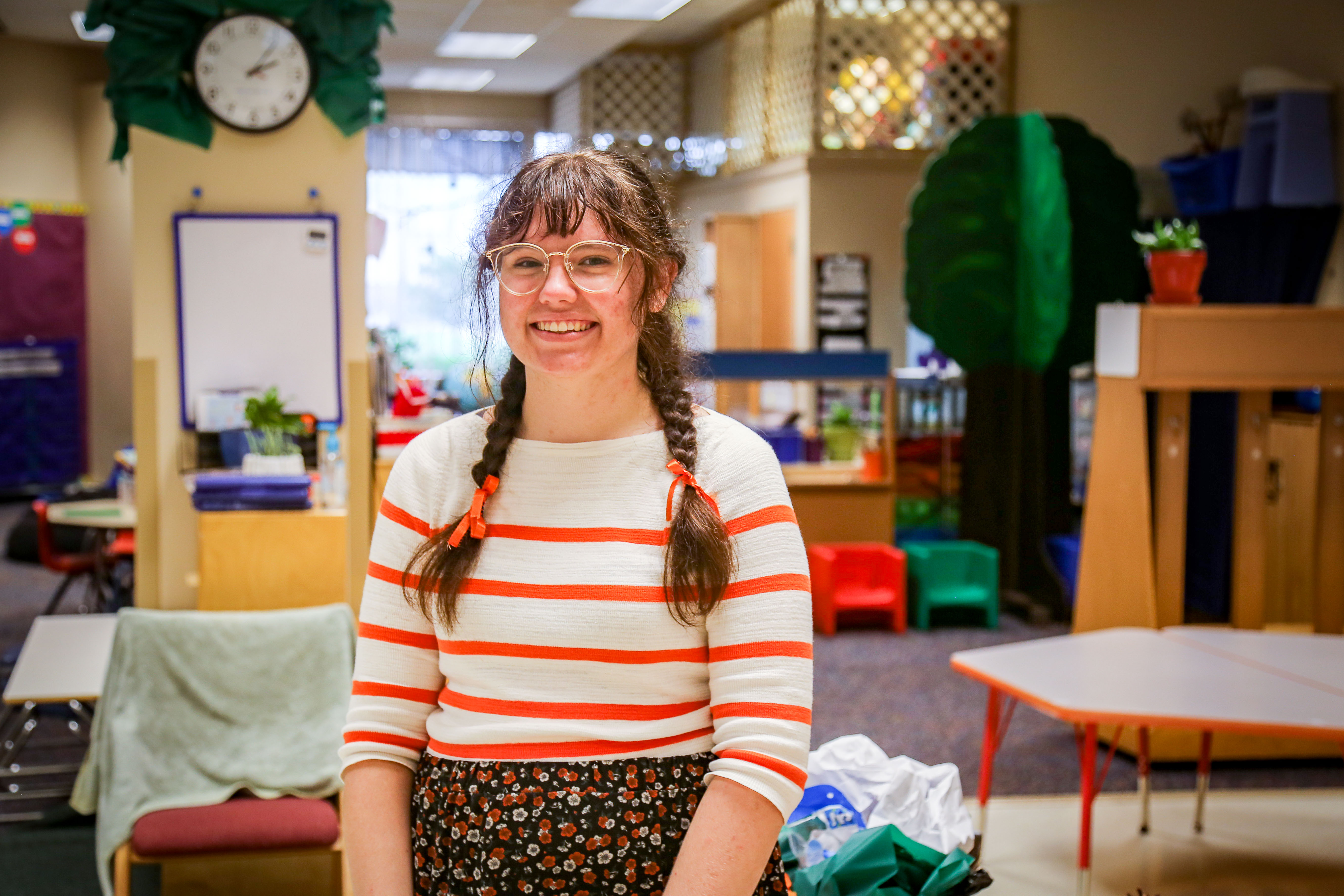
Anastasia Stevens ’24
TESOL and secondary education double major | Rushville, Indiana
“The most impactful piece of working in the College Kindergarten for me this year has been the power of connection. I get to see scaffolding for students with exceptional needs, like I’ve been learning about in my Exceptional Learners class. In another class I learn about the development of language and writing in young students, and I get to watch this development firsthand by observing writers’ workshops.
“Through observing the College Kindergarten, I’ve been challenged to think critically about classroom design, and the power of co-teaching. I’ve learned about the role of collaboration in early educational settings, and I’ve been an active participant through planning lessons, and working individually with students. The connections I’ve built with professionals, and with the children themselves, have truly reinforced my passion for working with younger students. The College Kindergarten is one of so many ways the teacher education program at Goshen has given me the opportunity to connect my learning in the classroom with real experiences in the broader community.”
___
The college’s Laboratory Kindergarten has been in operation by Goshen College since 1959, and joined in a partnership between the Education Department and Goshen Community Schools in 2008. Education students work alongside the teacher as they complete field experiences in the kindergarten.
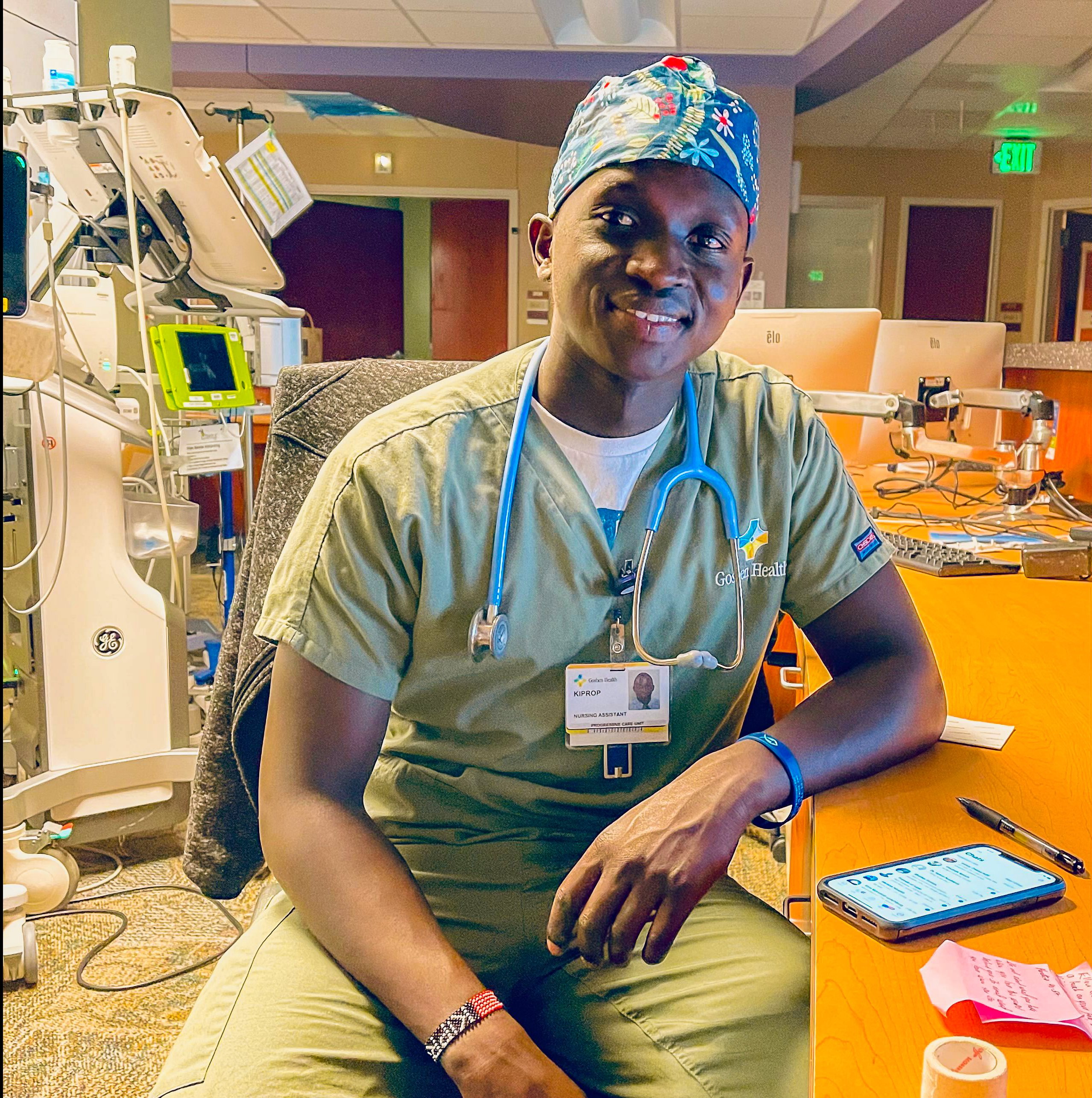
Kiprop Kiprotich ’22
nursing major | Eldoret, Kenya
“Caring and learning through the pandemic was a battle we fought hard. No matter how much we tried, it was difficult to win. We were always tired, but that never stopped us from serving and learning from our community. As a nursing assistant and student, I felt consumed. All the stress from taking care of my patients, performing CPR, seeing my patients and their families cry almost broke me. I had lost my bearing, but that wasn’t a reason to not care. It’s so hard to operate under exhaustion, guilt or fear of COVID-19. I remember all my patients; some were too young to die, but we couldn’t save them. Being from a culture that rarely talks about death, it was traumatizing to have end-of-life discussions, but I couldn’t avoid it. My dying patients taught me alot: to be grateful and prayerful. Those lessons still keep me going. Out of everything I’ve done or will ever do, nothing can compare to the joy and fulfillment of seeing my patients going home, especially from the ICU after spending weeks on the ventilator and being intubated. These were people from my community. I was always ecstatic releasing them to their families. The college and local community has given me so much that I felt I could return the favor by serving it and caring for its people.”
___
All nursing majors have the opportunity to gain plenty of hands-on learning through a variety of opportunities for nursing clinical experiences, including many right across the street at one of the best hospitals in Northern Indiana — Goshen Hospital. During the pandemic, the nursing majors were even able to have first-hand experience caring for COVID patients and helping manage a very difficult health crisis.
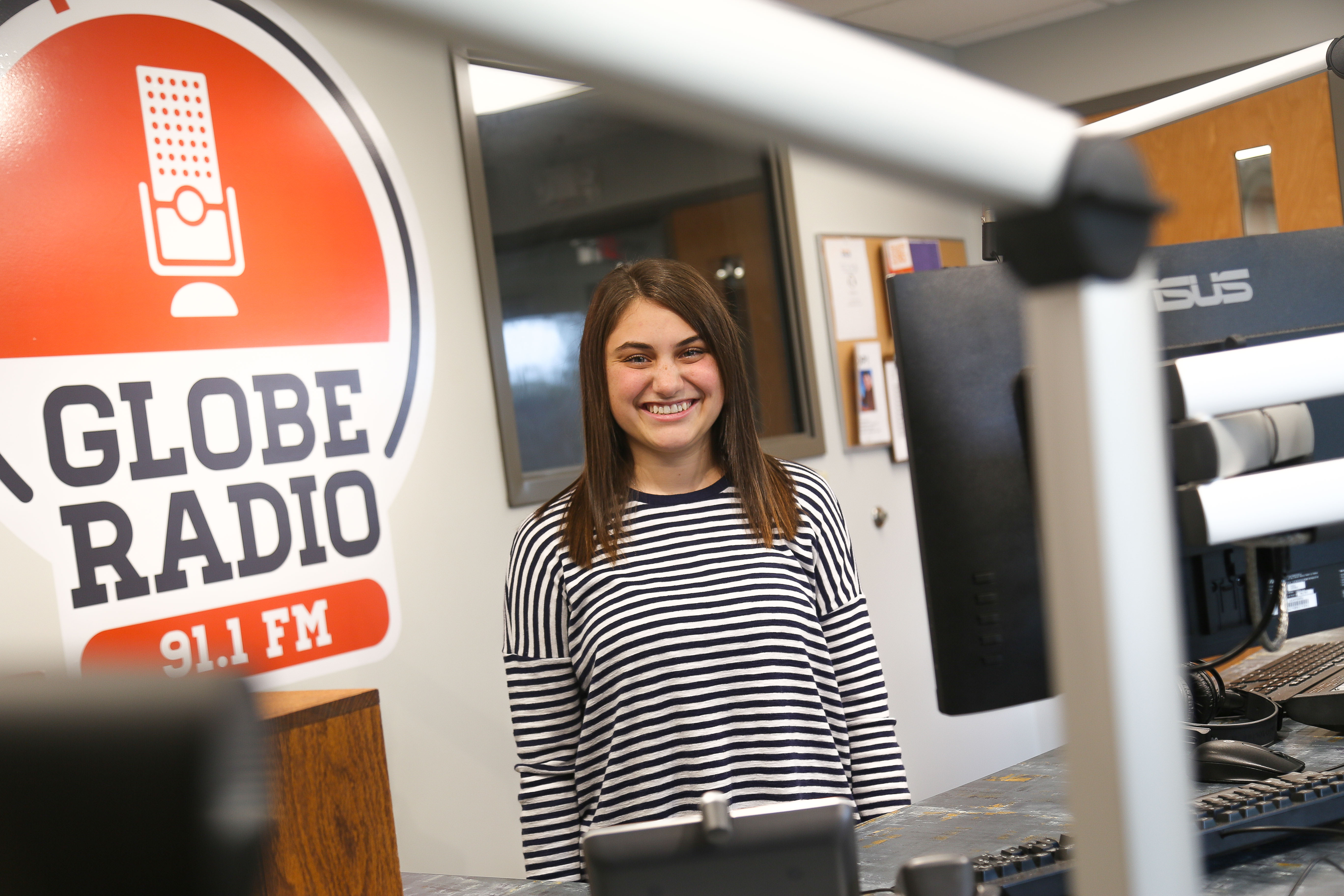
Gabriella Klopfenstein ’22
public relations major | Goshen
“The Center for Communication Studies has become my second home. I’ve had the opportunity to hold many leadership positions, but most recently as president of Public Relations Student Society of America (PRSSA) and the student station manager of 91.1 The Globe, our student-run radio station on campus. In these various leadership roles, I have experienced more than just on-campus opportunities. For my internships, through connections from PRSSA, I worked with organizations from Goshen and Elkhart. These opportunities not only shaped my skills and helped me find my true passion, but also gave me mentors and friends. My time in the communication department has fostered my love of learning, new relationships and prepared me for my future.”
___
Opened in 2020, the Center for Communication Studies at Goshen College brings together the award-winning television, radio, print and other media curriculars under one roof. Students are able to meet in one place and collaborate as one team. A department that has won a steady stream of statewide and national awards has found a new home with high energy and round-the-clock activity, with Globe Radio announcers on the air and student staff in a bustling newsroom.
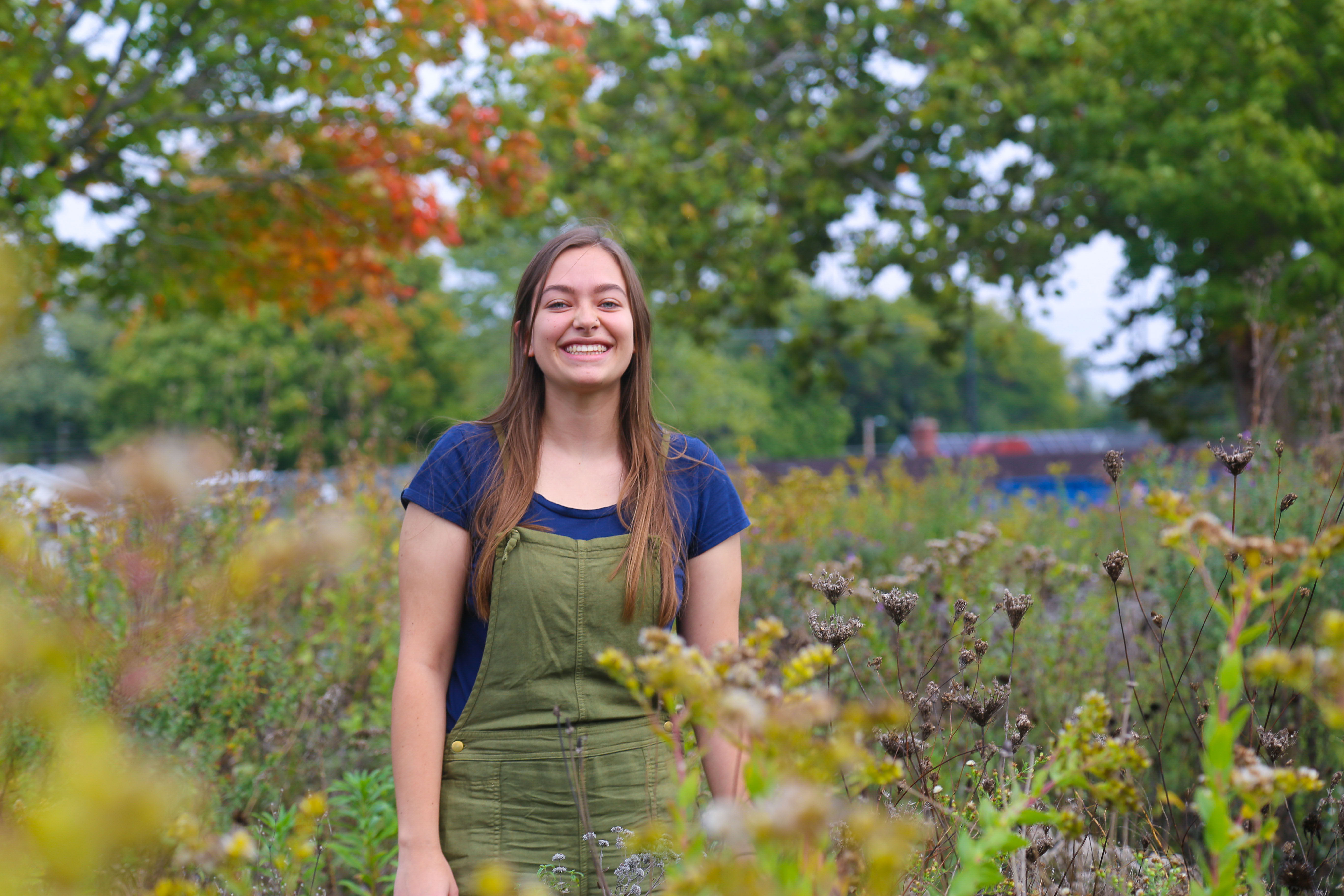
Anna Smucker ’22
graphic design major | Goshen
Initially, I had signed up for the Ecuador SST because I was excited about applying my Spanish knowledge and language in a different context. When the Ecuador SST was canceled [due to the pandemic], I chose this SST course because I hadn’t learned a lot about Indigenous Peoples in a global context and I wanted to know more about Navajo and Hopi people. Also being able to travel, hike, and explore the mountains with a group sounded like an added bonus!
When we first stayed with host families on the Navajo Reservation, I was immediately struck by my host family’s hospitality as they welcomed us into their homes as strangers. After asking questions and doing a lot of listening and learning, I remember being told a lot about the daily challenges that my host sister and mom faced over the years for being Native American, such as discrimination, hatred and prejudice. Yet, this was balanced out by stories of their incredible strength and courage to keep pushing on. I felt honored to be in a household with three generations of women who showed us nothing but patience, strength and kindness.
___
During the summer of 2021, the new Southwest Indigenous Perspectives Study-Service Term (SST) unit was the first domestic SST for the college. After taking several study courses on campus to prepare, 18 students spent six weeks exploring the Navajo and Hopi cultures, as well as leading the summer math and reading camps at the Peace Academic Center in Arizona.




